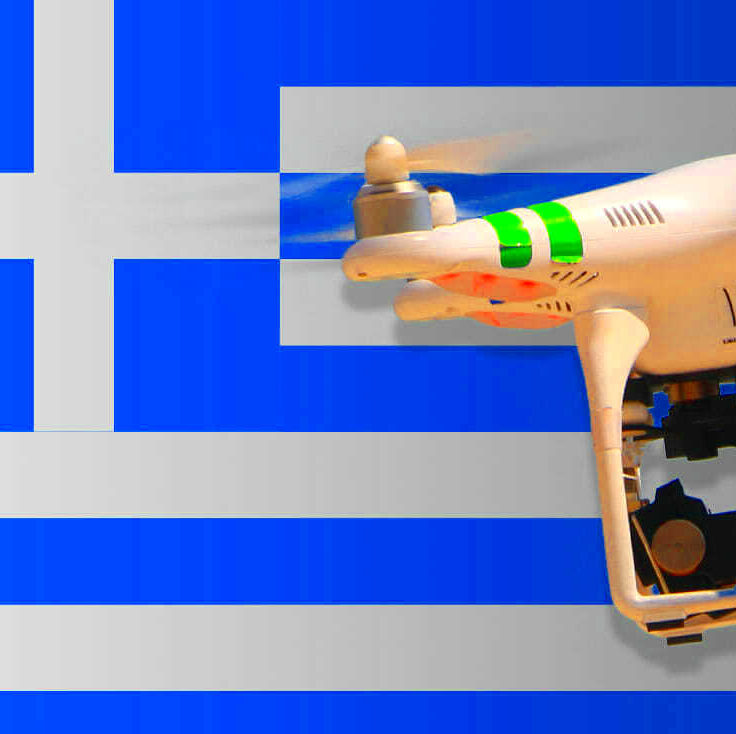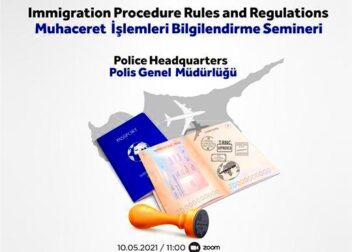Greece Drone Laws and How They Affect Your Travels
Greece is known for its stunning landscapes and historical sites, making it a popular destination for travelers and drone enthusiasts alike. However, flying a drone in Greece isn’t as simple as just taking off and capturing beautiful aerial views. There are specific laws and regulations in place that govern drone use. Understanding these laws is crucial to ensure you have a hassle-free experience while flying your drone. In this section, we’ll explore the fundamental aspects of drone laws in Greece, including what you need to know before you fly.
Key Regulations for Drone Usage

In Greece, drone regulations are aligned with European Union laws, particularly the European Union Aviation Safety Agency (EASA) regulations. Here are some key points to keep in mind:
- Categories of Drones: Drones are classified into three categories: Open, Specific, and Certified, depending on their weight and intended use.
- Maximum Altitude: Drones are generally allowed to fly up to a maximum altitude of 120 meters (about 394 feet) above ground level.
- Visual Line of Sight: Pilots must keep their drones within visual line of sight at all times during flight.
- No-Fly Zones: Certain areas, especially near airports, military zones, and urban centers, are designated as no-fly zones.
Familiarizing yourself with these regulations can help avoid fines or penalties. Always check local updates or changes in the law, as they can vary by region.
Registration Requirements for Drones
If you’re planning to fly a drone in Greece, registration is a crucial step. Here’s what you need to know about the registration requirements:
- Drone Weight: If your drone weighs more than 250 grams (0.55 lbs), you must register it with the Hellenic Civil Aviation Authority (HCAA).
- Registration Process: Registration can typically be done online. You will need to provide details like your name, contact information, and specifics about the drone.
- Unique Identifier: After registration, you’ll receive a unique identification number that must be displayed on your drone.
- Renewal: Keep in mind that drone registrations may need to be renewed periodically, so check the requirements.
Ensuring your drone is properly registered not only keeps you compliant with the law but also enhances your credibility as a responsible pilot while flying in Greece.
Drone Flight Restrictions in Tourist Areas
When traveling to Greece, it’s hard to resist capturing its breathtaking scenery with your drone. However, flying a drone in popular tourist areas comes with strict regulations to ensure the safety of visitors and the protection of cultural heritage. Understanding these restrictions will help you enjoy your drone-flying experience while staying within the law.
Here are some important flight restrictions to keep in mind:
- Historical Sites: Many ancient ruins and historical sites have strict no-fly zones to protect their integrity. Always check for local signs indicating where drone use is prohibited.
- Crowded Areas: Flying your drone over crowds or densely populated areas is typically forbidden to avoid accidents. Keep your drone at a safe distance from people.
- Protected Natural Areas: Greece is home to numerous national parks and protected landscapes where drone flying is restricted to preserve wildlife and natural habitats.
- Beaches and Resorts: Many popular beaches and resort areas also have regulations against drone use, often to ensure privacy for guests and visitors.
Before taking off, it’s wise to do a bit of research about the specific area you plan to fly in. Respecting these restrictions not only helps you avoid penalties but also contributes to preserving the beauty of Greece.
Insurance and Liability Considerations
When flying a drone, especially in a foreign country like Greece, understanding insurance and liability considerations is essential. Accidents can happen, and having the right coverage can save you from unexpected costs. Here’s what you need to know:
- Insurance Requirements: While not always mandatory, having liability insurance is highly recommended. It can protect you from financial loss in case of accidents or damage to property.
- Types of Insurance: Consider getting insurance that covers:
- Damage to your drone
- Liability for damages to third parties
- Accidental loss or theft
- Local Insurance Options: Check if your current insurance covers international drone flights or look for local insurance providers in Greece who offer specific drone policies.
- Reading the Fine Print: Always read the terms and conditions of any insurance policy to understand what is covered and any exclusions that may apply.
By being proactive about insurance, you can fly with peace of mind, knowing you’re protected against potential mishaps during your travels.
Penalties for Violating Drone Laws
Breaking drone laws in Greece can lead to serious consequences. As a responsible drone pilot, it’s crucial to be aware of the penalties you might face if you violate these regulations. Here’s a breakdown of what you could encounter:
- Fines: Depending on the severity of the violation, fines can range from a few hundred to several thousand euros. Minor infractions might incur smaller fines, while major breaches could lead to hefty penalties.
- Confiscation of Equipment: Authorities may confiscate your drone if you’re found operating it in restricted areas or without proper registration.
- Legal Action: In severe cases, violations could lead to legal proceedings, which may result in criminal charges. This is especially true for actions that endanger public safety or violate privacy rights.
- Flight Bans: Repeated violations may result in a temporary or permanent ban from flying drones in Greece.
Understanding these potential penalties emphasizes the importance of following drone laws while traveling. By being informed and respectful of the regulations, you can enjoy flying your drone without the worry of facing consequences.
Recommendations for Safe Drone Flying in Greece
Flying a drone in Greece can be an incredible experience, offering stunning views of its landscapes and historic sites. However, to ensure a safe and enjoyable experience, it’s essential to follow certain recommendations. Here are some tips to keep in mind while flying your drone:
- Check Local Regulations: Always review local drone regulations before flying. Laws can vary by region and may change over time.
- Be Mindful of Weather Conditions: Flying in high winds or rain can be dangerous for your drone. Check the weather forecast and avoid flying in adverse conditions.
- Maintain Visual Line of Sight: Keep your drone within your line of sight at all times. This not only helps in maintaining control but also ensures safety.
- Respect Privacy: Be considerate of people’s privacy when flying. Avoid flying over private properties without permission.
- Use a Spotter: If possible, have someone with you to help watch for obstacles and people while you focus on flying.
- Prepare for Emergencies: Always have a plan for emergencies, like a sudden loss of signal or battery failure. Knowing how to handle these situations can prevent accidents.
By following these recommendations, you can ensure a safe and enjoyable drone-flying experience in the beautiful landscapes of Greece.
Impact of Drone Laws on Your Travel Plans
Drone laws in Greece can significantly impact your travel plans, especially if you’re looking to capture stunning aerial footage. Understanding these laws will help you make informed decisions about where and when to fly. Here’s how drone regulations might affect your travel:
- Restricted Areas: Many tourist hotspots, like archaeological sites and national parks, have strict regulations. You may need to adjust your itinerary to find locations where flying is permitted.
- Time Constraints: Some areas allow drone flying only during specific hours. Plan your flying sessions accordingly to avoid disappointment.
- Need for Registration: If your drone requires registration, factor in the time needed to complete this process before your trip.
- Insurance Requirements: Depending on your insurance coverage, you may need to find a policy that meets Greek regulations, which could take time to sort out.
- Fines and Penalties: Knowing the potential penalties for violations can influence your flying habits and willingness to take risks.
By being aware of these impacts, you can better plan your travels and enjoy Greece while following the rules.
Frequently Asked Questions
When it comes to flying drones in Greece, you might have several questions. Here are some common queries along with their answers:
- Do I need a license to fly a drone in Greece? Depending on your drone’s weight and purpose, you may need a license or certification. Always check the latest regulations.
- Can I fly my drone over the beach? Flying drones over crowded beaches is generally prohibited to ensure the safety and privacy of beachgoers.
- What should I do if I see a no-fly zone? Respect the no-fly zone and do not attempt to fly your drone in those areas. Look for alternative locations where flying is permitted.
- Are there specific times when I can fly my drone? Some areas may have specific time restrictions, so it’s essential to check local regulations before planning your flight.
- What happens if I get caught violating drone laws? Violating drone laws can lead to fines, confiscation of your drone, or even legal action, depending on the severity of the infraction.
If you have any other questions, don’t hesitate to do further research or contact local authorities for guidance. Staying informed is key to a smooth flying experience!
Conclusion
Flying a drone in Greece offers a unique way to capture the country’s breathtaking landscapes and historical sites. However, it comes with responsibilities and regulations that must be respected. By understanding the key laws and restrictions, ensuring your drone is registered, and following safety recommendations, you can have a memorable and trouble-free experience. Always prioritize safety and legality to enjoy the stunning vistas Greece has to offer without the risk of penalties or accidents. Happy flying!


